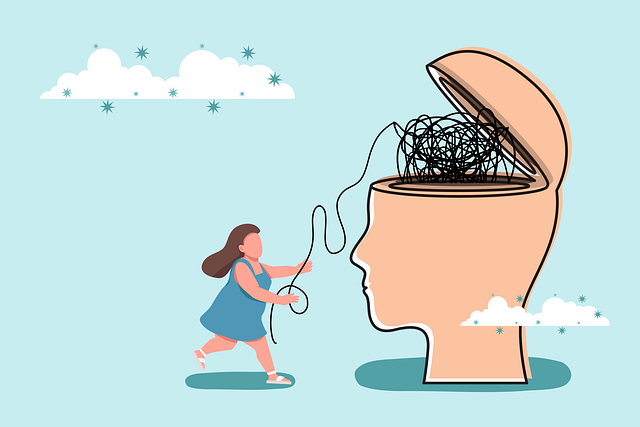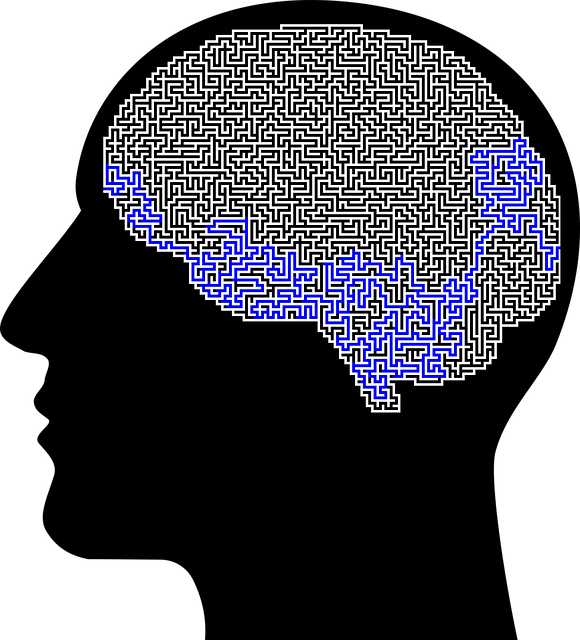Community outreach programs, focusing on therapy for children's grief counseling, transform mental health by addressing local needs and bridging healthcare access gaps. These initiatives, designed with cultural sensitivity and tailored support, enhance emotional well-being through safe spaces, playtherapy, mindfulness exercises, and age-specific trauma support. Trained counselors, equipped through specialized training and ongoing development, provide compassionate care while destigmatizing mental wellness issues. Continuous improvement is driven by measuring impact through attendance, parent feedback, and emotional intelligence assessments, ensuring programs remain relevant and effective in supporting children's resilience.
Community outreach programs play a pivotal role in addressing children’s mental health, particularly when it comes to therapy for grief counseling. This article explores the multifaceted approach to implementing effective initiatives that support young minds. From understanding the community’s unique needs to designing tailored programs and training counselors, each step is crucial. We delve into strategies for identifying traumatic experiences and evaluating impact, ensuring a supportive environment for kids in need of therapy for children’s grief counseling.
- Understanding Community Outreach: Why It Matters for Children's Mental Health
- Identifying Needs: Assessing Grief and Traumatic Experiences in the Community
- Designing Effective Programs: Creating a Supportive Environment for Kids
- Training and Supporting Counselors: Ensuring Quality Grief Counseling
- Measuring Impact: Evaluating Success and Continuous Improvement
Understanding Community Outreach: Why It Matters for Children's Mental Health

Community outreach programs play a pivotal role in promoting children’s mental health by providing accessible therapy and grief counseling services. Understanding the unique challenges that communities face is essential for tailoring support systems that foster resilience among young individuals. By bringing mental health resources directly to communities, especially those often overlooked or with limited access to healthcare, these initiatives bridge the gap between support and need.
This approach not only enhances Mental Health Awareness but also empowers children and their families through Self-Awareness Exercises, teaching them coping mechanisms and building resilience. Such programs can significantly impact a child’s overall well-being, ensuring they receive the necessary care without barriers. This proactive strategy acknowledges that addressing emotional health is integral to a community’s overall prosperity.
Identifying Needs: Assessing Grief and Traumatic Experiences in the Community

Identifying the specific needs within a community is a crucial step in designing effective outreach programs. When addressing issues related to grief and trauma, understanding the unique experiences and challenges faced by its residents is paramount. Community assessment should involve gathering data on recent traumatic events, such as natural disasters, community violence, or public health crises, which can significantly impact mental health. This process includes reaching out to local schools, community centers, and faith-based organizations to gauge the prevalence of unmet needs.
For instance, therapy for children experiencing grief counseling should be tailored to address cultural nuances and diverse family structures. Healthcare provider training in cultural competency ensures that support services are accessible and sensitive to these variations. Moreover, incorporating compassion cultivation practices into outreach programs can help individuals manage stress and process traumatic memories effectively.
Designing Effective Programs: Creating a Supportive Environment for Kids

Implementing community outreach programs that focus on creating supportive environments for children is a powerful approach to fostering their growth and well-being. These initiatives aim to address various challenges kids face, including trauma and grief. By offering therapy for children and grief counseling services, communities can provide much-needed support systems. Such programs should be designed with an understanding of the unique needs and sensitivities of younger individuals.
A key aspect is establishing safe spaces where children feel comfortable sharing their experiences and emotions. Incorporating playtherapy and creative outlets can make these sessions engaging and less intimidating. Stress reduction methods, such as mindfulness exercises, can also help kids develop inner strength. Trauma support services tailored to their age groups enable them to process difficult events, fostering resilience and emotional intelligence.
Training and Supporting Counselors: Ensuring Quality Grief Counseling

Implementing community outreach programs that offer therapy for children’s grief counseling requires a dedicated and skilled workforce. Training and supporting counselors play a pivotal role in ensuring quality grief counseling services. Effective training should encompass not just technical skills but also emotional intelligence, as it equips counselors to handle the nuanced emotional needs of children grappling with loss.
Public awareness campaigns development can help destigmatize mental wellness issues among children and adults alike. By fostering open conversations about grief and trauma, these initiatives create an environment where individuals feel comfortable seeking counseling when needed. Moreover, ongoing support for counselors through supervision, peer mentoring, and regular professional development workshops is essential to maintain the highest standards of care. This holistic approach ensures that children receive compassionate and competent therapy tailored to their unique needs.
Measuring Impact: Evaluating Success and Continuous Improvement

Measuring the impact of community outreach programs is crucial to understanding their success and identifying areas for improvement. By evaluating the reach and engagement of these initiatives, organizations can assess how effectively they are addressing the needs of children and families dealing with grief and loss. This includes tracking attendance at therapy sessions, parent feedback, and changes in emotional intelligence levels among participants.
Regular assessments allow for continuous improvement, ensuring that programs remain relevant and beneficial. For instance, integrating mindfulness meditation and self-care routine development for better mental health can be evaluated alongside traditional grief counseling to gauge participant satisfaction and well-being. Such an approach not only enhances the program’s effectiveness but also underscores its commitment to holistic support for children in need.
Implementing community outreach programs focused on therapy for children’s grief counseling is a powerful strategy to address traumatic experiences. By identifying needs, designing supportive environments, and training counselors effectively, we can create a network of support that enhances mental health outcomes for kids. Continuous evaluation ensures these programs remain impactful and adaptable to the evolving needs of our communities. This multifaceted approach underscores the importance of community outreach in fostering resilience and healing among children.














